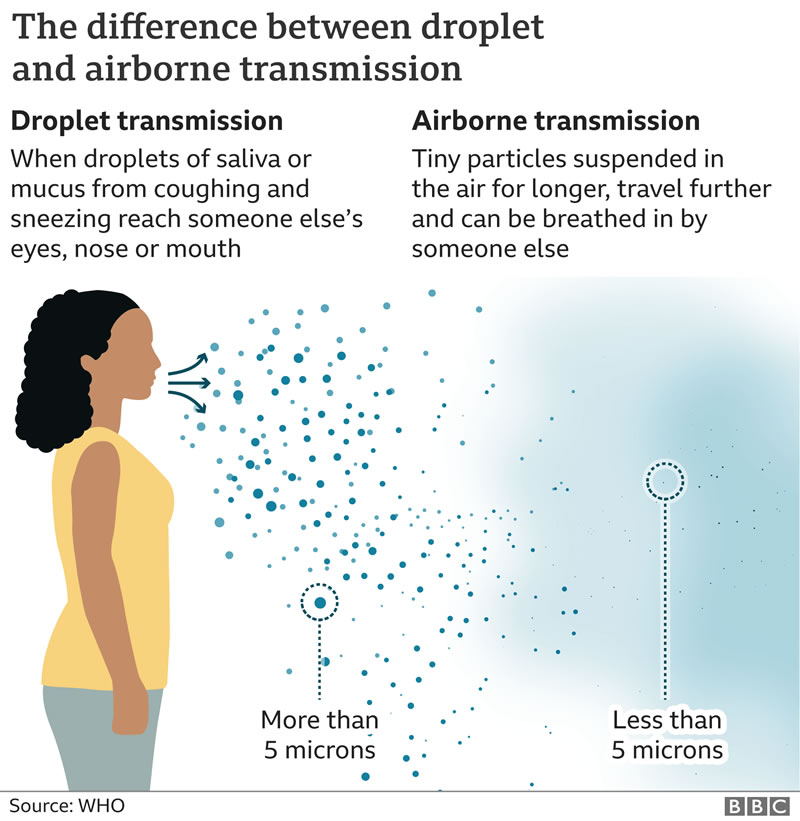Coronavirus: WHO Rethinking How Covid-19 Spreads In Air
- Home
- Coronavirus: WHO Rethinking How Covid-19 Spreads In Air

Coronavirus: WHO Rethinking How Covid-19 Spreads In Air
 The World Health Organization has acknowledged there is emerging evidence that the coronavirus can be spread by tiny particles suspended in the air.
The World Health Organization has acknowledged there is emerging evidence that the coronavirus can be spread by tiny particles suspended in the air.
The airborne transmission could not be ruled out in crowded, closed or poorly ventilated settings, an official said.
If the evidence is confirmed, it may affect guidelines for indoor spaces.
An open letter from more than 200 scientists had accused the WHO of underestimating the possibility of airborne transmission.
The WHO has so far said that the virus is transmitted through droplets when people cough or sneeze.
“We wanted them to acknowledge the evidence,” Jose Jimenez, a chemist at the University of Colorado who signed the paper, told the Reuters news agency.
“This is definitely not an attack on the WHO. It’s a scientific debate, but we felt we needed to go public because they were refusing to hear the evidence after many conversations with them,” he said.
Another signatory – Professor Benjamin Cowling of Hong Kong University – told the BBC the finding had “important implications”.
“In healthcare settings, if aerosol transmission poses a risk then we understand healthcare workers should really be wearing the best possible preventive equipment… and actually the World Health Organization said that one of the reasons they were not keen to talk about aerosol transmission of Covid-19 is because there’s not a sufficient number of these kind of specialised masks for many parts of the world,” he said.
“And in the community, if we’re thinking about aerosol transmission being a particular risk, then we need to think about how to prevent larger super spreading events, larger outbreaks and those occur in indoor environments with poor ventilation, with crowding and with prolonged close contact.”

WHO officials have cautioned the evidence is preliminary and requires further assessment.
Benedetta Allegranzi, the WHO’s technical lead for infection prevention and control, said that evidence emerging of airborne transmission of the coronavirus in “crowded, closed, poorly ventilated settings that have been described, cannot be ruled out”.
Source: BBC
- Share
Classic Ghana
Classic Ghana brings you into a fun world of arts, entertainment, fashion, beauty, photography, culture and all things in between. Let’s explore these together!







